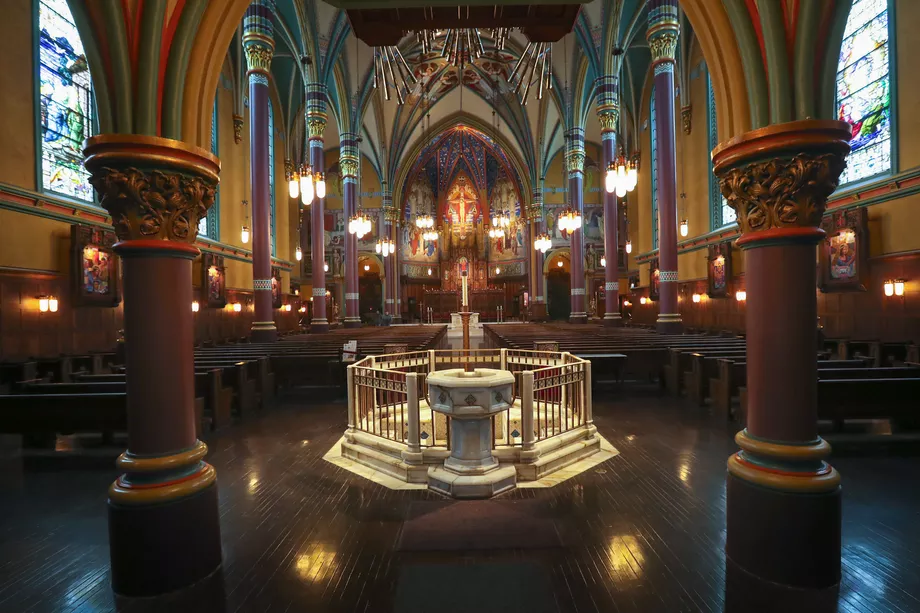Eliminating Clergy-penitent Privilege Raises First Amendment Red Flags
Deseret News
This week the Catholic League came out strongly against proposed legislation in Utah aiming to eliminate an exemption for clergy when it comes to reporting confidential confessions detailing abuse. Meanwhile, the Montana Supreme Court recently cited clergy-penitent exemptions in a decision overturning a jury verdict of $35 million against local Jehovah’s Witnesses for not reporting abuse discovered in the mid-2000s. The court ruled, unanimously, that under Montana law, “Clergy are not required to report known or suspected child abuse if the knowledge results from a congregation member’s confidential communication or confession and if the person making the statement does not consent to disclosure.” Even as the Montana court’s decision upholds the continued efficacy of legal privileges aimed at protecting private confessions to clergy, some question the wisdom of priest-penitent privileges when child abuse is confessed. Protecting children from abuse is vital, meriting unrelenting efforts to support victims and prosecute perpetrators. A majority of states still recognize that such efforts can be pursued while balancing valuable protections of certain confidential spousal, attorney-client or priest-penitent communications. Under Utah law, clergy are among those required to report suspected abuse. But, like a majority of states, Utah also provides an exemption from reporting when abuse is discovered through a confidential confession to clergy. In addition to Utah, 25 other states have mandatory reporting laws which specifically name clergy (alongside other community members such teachers and law enforcement) as required under law to report child abuse. But, in all but a small handful of states, clergy are exempt in circumstances of clergy-penitent confession. Still other states have laws which make all adults — including clergy — mandatory reporters of child abuse, but, according to a review by Christianity Today, even a majority of those states (eight total) similarly “provide an exemption via the clergy-penitent privilege.” As others have argued, the push to eliminate the clergy-penitent privilege raises First Amendment red flags; others are concerned about winnowing away laws related to personal freedom or privacy, particularly at a time when mass surveillance is ubiquitous and personal data breaches are common. For at least two centuries, however, jurists in common law traditions have recognized an additional reason why attempts to compel clergy to “divulge any confessions made … in the course of religious visits” might actually subvert the chief “object of punishment,” namely “the reformation and improvement of the offender.” The hope inherent in confidential confession is that clergy can help the penitent change, reform and, in instances of criminal activity, turn themselves in to square with the law, their victims and ultimately pay the appropriate legal debt to society for their wrongs. It stands to reason that eliminating certain clergy-penitent exemptions would deter perpetrators from freely confessing. And, in the words of a Colorado-based attorney discussing the proposed legislation in Utah, “The confessional is not just a black hole. If a priest hears something in confession, they may urge the person to get help, talk to police or say ‘talk to me outside of the confessional.’” Meanwhile, any legislation that seeks to pry open the priest-penitent privilege, according to religious experts, risks trampling the “Seal of Confession,” a tenant of Catholic canon law dating back to at least the early 1200s. Catholic clergy warn that any betrayal of confidence from confession results in a priest’s excommunication. For centuries, even opponents of religion, such as Jeremy Bentham, have recognized the necessity of protecting the privilege rooted in both the Catholic faith and the common law tradition. None of this is to discount the deeply troubling instances of abuse that occur at the hands of religious. Clergy — alongside fellow community members — must work assiduously to eradicate the scourge of abuse in any form. There must be zero tolerance, and, for Christians, Jesus Christ was unequivocal in his condemnation of those who harm “little ones.” While there must be no shadows in which perpetrators can hide from justice, in weighing public policies, a majority of states have found ways to acknowledge First Amendment freedoms and the longstanding importance of confidential confessions while continuing to fight for and protect the most vulnerable in society.
|
.
Any original material on these pages is copyright © BishopAccountability.org 2004. Reproduce freely with attribution.
